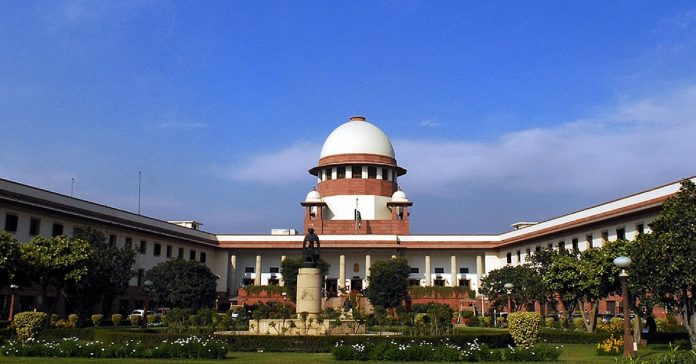This article is written by Prabha Dabral, from IMS Unison University, Dehradun. This is an article which deals with the state of lawlessness in 21st century India.
Table of Contents
Introduction
Merriam- Webster defines lawlessness as the state where wrongdoing is widespread and there is disregard for rules and authority. State of lawlessness indicates how the administration of the country has become worse with time. Today, people by grouping together are taking law into their own hands and inventing their own rules and not abiding by the rules of the nation. They are not scared by the law, not even by the Supreme Court. The increase in these situations is making our nation a state of lawlessness.
The norms and the ideas of fairness and decency that were accepted by all the sides in the nation are long lost. It is the same nation that got its freedom way back in 1947 and is still struggling to get justice, not because of outsiders but due to our own people this time. The state of lawlessness is an important issue as it is creating an atmosphere of fear and affecting the faith that the people have in the judicial system of the country.
Viewing 21st century India as a state of lawlessness
There are a number of events that are responsible for the creation of this state of lawlessness.
Bengal polling
Recently, the Central Industrial Security Force (CISF) opened fire after the Bengal locals started attacking them in the West Bengal assembly elections. This happened in the ruling of Trina Mool Congress (TMC) when the voting exercise at polling station no. 126 was happening. TMC later sought a Crime Investigation Department (CID) investigation for the incident as the Bharatiya Janata Party accused them of instigating people against security. This violence resulted in the deaths of 4 people. TMC goons were accused of being responsible for this incident.
Hathras case
The horrible rape and murder case in Hathras will be remembered by all where a girl was raped by her upper-class neighbours. The police decided to lock the family of that girl in a room and took that girl’s body and did the cremation themselves. This is how the Uttar Pradesh (UP) Government handled the Dalit girl’s rape case.
What happened is an ugly reminder of what a lawless administration can do to our nation. This is what the state of lawlessness means, the strongest section does whatever they want without the fear of administration. They do it because they know they can get away with it.
Cow vigilantism undermining the rule of law
Between the years 2012 and 2018, out of 120 cases of cow-related violence reported across India a total of 45 people were killed. This information is as per the data analytics site.
A police officer named Subodh Kumar Singh was killed in the Bulandshahr district in Uttar Pradesh. His attackers were the violent mob who were protesting for the inability of the police to stop the cows from being slaughtered. With this incident in mind, it appears that even the officers of the law are not safe in India.
It was found that Singh was instigating the 2015 lynching of Mohammed Akhlaq, who was accused of cow slaughtering and beef consumption. The sister of the deceased Ivan claims that it was all a conspiracy set up against the officer and the other police officers work together in this with cow protection gangs.
The fear that the officer’s murderers are freely roaming around suggests the collapse of constitutional values.
System of khap panchayats
Khap panchayats are the panchayats that run their own judicial system. The term “khap” is used for the social grouping of the people elderly of the village having enough power to declare marriages void without any legal process or any sanction of law.
It is the duty of the parliament to address all evils of society but this part of society has taken this duty into its own hands and has started to enforce its own rules.
Under the Hindu Marriage Act, 1955 marriages between the two sapindas are prohibited. Sapindas relationship is where one of the two persons are lineal ascendant of the other or if they have a common lineal ascendant. Inter-caste marriages are in no way prohibited in the above-mentioned Act. The khap panchayat is against these marriages and without any legal sanction, they declare all these marriages within the same gotra void. Even the government in the past has tried to invalidate their rulings but even they have failed.
An instance of khap panchayat– There was a medical practitioner named Ved Pal. He ran a clinic near the house of his lover, Sonia. They both belonged to different gotras and wanted to marry against their family’s wishes. They did marry each other in court. The decision of the khap was that they both were siblings and were sentenced to death. The High court even gave protection to Ved but still, he died. Even the law was not strong enough to protect people’s lives against evil.
Change in perception of rule of law
The acts of vigilantism are increasing at a constant speed. Vigilantism means the grouping of people to enforce their own rules illegally. Whether it’s the system of khap panchayat or the cow protection group, no one gives them any right to go against our constitution. They have a different view on justice and are even ready to hurt the victim in the process.
Putting major Indian states under the radar of lawlessness
The state of Uttar Pradesh has the highest number of reported crimes regarding violent incidents. Violence related to cow protection tops the list of crimes that happen in UP. In the state, not even a police officer is safe there. Recently, a police officer had to pay the price while protecting his law against the “moral police”. Moral police are the group of people who are taking the law into their hands and are even ready to hurt the victim in the process.
These circumstances in the state of Uttar Pradesh indicate the growing state of lawlessness.
Threat to constitutional morality
Several states in India have regulations that prohibit the sale of cows for slaughter. But still, in Uttar Pradesh, the cow vigilante groups are taking the law into their hands and protecting the cows by spreading lawlessness and inflaming communalism within their own community. If the administration of the state does not take action against this then our constitutional morality will suffer.
The major causes responsible for creating a state of lawlessness
The oppression by the agents of the state and the unwillingness of the political leaders to take action are some of the reasons that are responsible. The practice of taking and giving bribes is not stopping. Even for small needs like water connection, making of birth and death certificate and even to file a police complaint, bribes are taken.
Along with these, the other major causes that are responsible are as follows-
Dying democracy
The methods used by the Britishers at the time when they ruled India, are now being used by the police in our democratic country. If a citizen raises his voice against some wrongdoing or stands in a protest supporting others then they are beaten up by the police mercilessly. This is how our democracy is dying. The day is not far away when we can’t even go to these protectors of law to claim our rights.
Paralysed parliament
Parliament being the voice of the citizens has now almost stopped doing that. The political parties have tried to paralyse the parliament; it is being prevented from making the needed laws. There is a large number of absent members in the meeting and day by day, the number of meetings is decreasing.
Time taking delivery of justice
Our judiciary is overburdened with cases. There are over 1.4 judges per 100,000 population in India. For this lawlessness to be abolished, we need speedy delivery of justice so that serious issues that are increasing today in the modern world could be acknowledged and justice to be given.
The possible solution towards curbing lawlessness
We need to take full action to make our constitution work. Firstly, the state must put in the effort to provide speedy delivery of justice. Our judicial system needs a massive investment to face this issue. We need the government to come closer to the needs of the people. The state government must be given an increase in power and resources.
Lastly, those people are needed who do not avoid the call to public service to join the political parties. The recruitment rules of senior bureaucracy must be changed now and deserving people may fill the seats.
There is a chance for communalism to arise by some political design. It is high time for India to have a strong resistance against these communal passions.
Conclusion
The question arises can we stop this injustice and disregard for rules and authority. It is a, yes, we can, we had done it before when the people of the nation stood together against the Britishers and got their freedom. So why not now, when it’s our own people of the nation who need to know the power of unity.
With the evolution of society, there is an evolution in the laws. For example, sati pratha and child marriage. With time people realized that these rituals are against the rights of the weaker section and then these practices were abolished. Similarly, in modern times where the crime rate is touching heights, there is a desperation to enforce new and strong laws.
The consequences of this lawlessness are more violent and more deaths in the name of fighting evil.
References
- https://www.thehindu.com/opinion/op-ed/The-paradox-of-the-21st-century/article13796345.ece
- https://www.aljazeera.com/opinions/2019/1/3/how-cow-vigilantism-is-undermining-the-rule-of-law-in-india
- https://www.freepressjournal.in/analysis/the-deep-rot-of-a-lawless-state
- https://www.thehindubusinessline.com/opinion/india-a-lawless-nation/article22996071.ece
- https://www.thehindu.com/specials/in-depth/the-dadri-lynching-how-events-unfolded/article7719414.ece
LawSikho has created a telegram group for exchanging legal knowledge, referrals, and various opportunities. You can click on this link and join:
 Serato DJ Crack 2025Serato DJ PRO Crack
Serato DJ Crack 2025Serato DJ PRO Crack










 Allow notifications
Allow notifications


